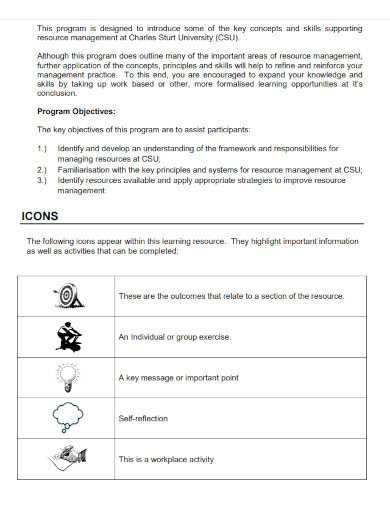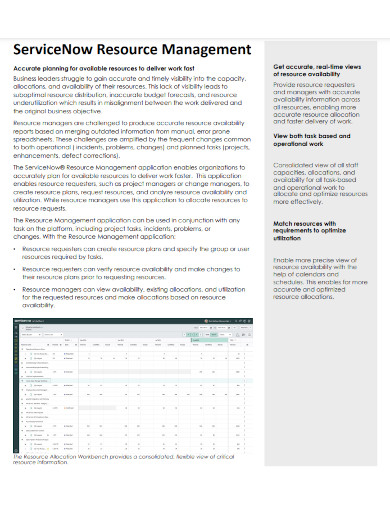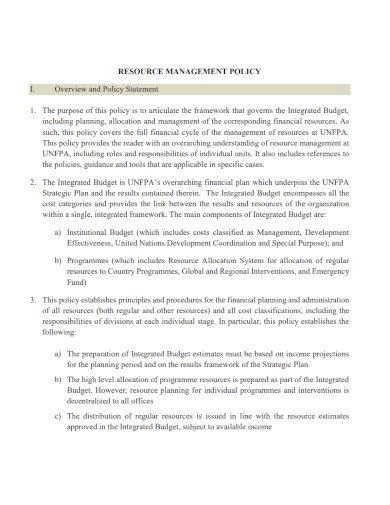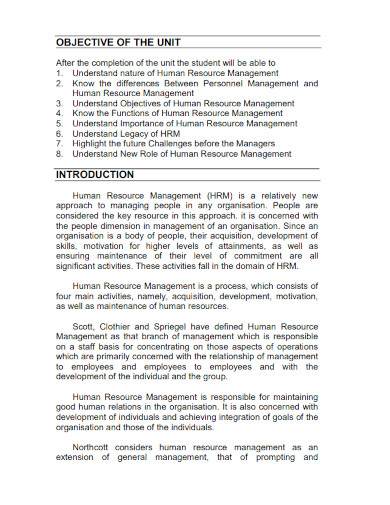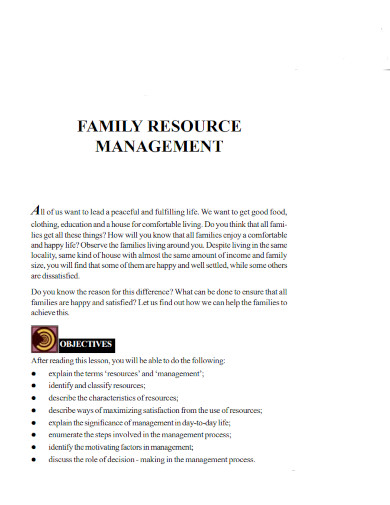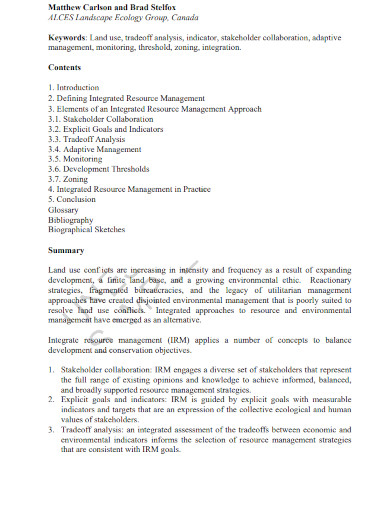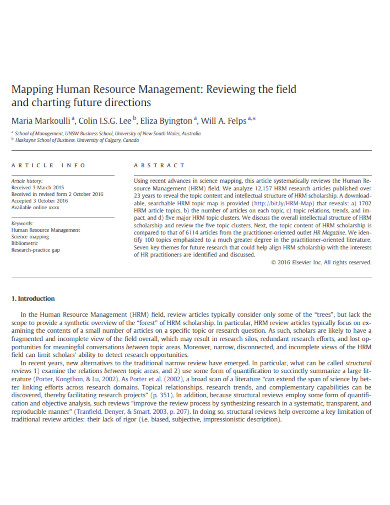As a business owner, your ability to multitask gives you an advantage over your competitors. The management of a company plays an important role in the smooth running of these activities. As a manager, you must always be one step ahead of your competition. Pay attention to possible dangers and be prepared to handle them if they occur. First, you’ll need to devise a strategy for managing the situation. We may be doomed if you don’t do something soon. The profitability of our company could be jeopardized as a result of changing market circumstances. If you’re going to perform surgery, you’ll need a plan for how the procedure will go forward.
All of a company’s activities are governed by a management plan. This document covers everything from how to handle money, how to work with the organization, and how to discuss the daily lives of employees. It also includes the broader philosophical and intellectual context in which these strategies are put into action and function as intended. Instead, a management strategy ensures that everything runs as smoothly and as efficiently for the company as it can be. There are many benefits to having a management strategy. Developing a management strategy is a difficult task for the majority of managers. In order to avoid falling into the same pitfalls as the vast majority of business leaders, we’re here to help. Start with one of these sample management plans to come up with your own unique document. To help you get started, we’ve provided a few examples of how you can incorporate these techniques into your own writing.
6+ Resource Management Samples
1. Resource Management Example
2. ServiceNow Resource Management
3. Resource Management Policy
4. Human Resource Management
5. Family Resource Management
6. Integrated Resource Management And Planning
7. Mapping Human Resource Management
What Is Resource Management?
When creating a management plan, project managers lay out the project’s objectives, along with who is responsible for accomplishing them and how. There are a number of other tasks that must be completed in order for the project to be a success. Everyone in your company may benefit from seeing where things are headed if you make your management plan public. Make a list of all the things your company must do in order to succeed. Also included are details on how it plans to go about doing so, as well as how it plans to measure its success. If you run a large or small business, it doesn’t matter. The smooth and efficient operation of the company is one of the primary goals of your management strategy. In order for a company to function, a large number of tasks must be completed simultaneously.
Elements of Resources Management
You can’t just assume that if something goes wrong, it will all work out in the end. This is going to get you in a lot of trouble. Creating and following a daily to-do list should become ingrained in your routine.
- Executive summary
An organization’s management plan’s executive summary is the first thing readers see when it is opened. This document summarizes the overall management strategy. Make sure you keep your main points in mind as you write your summary. A lot of information should not be discussed in great detail. However, the most critical points must be covered in sufficient detail. It is expected that even those who have not read the entire management plan will be able to understand this summary. - Vision statement
Your goal statement must be linked to this text in order to move forward in the process. We created this tool to assist organizations with making decisions that are in line with their core values and goals. The term “vision statement” and “mission statement” are often used interchangeably, but there are some misconceptions about what they mean. - Mission statement
Make sure your mission statement is easy to understand if you want people to know what your organization does. How and why it was built; what is its purpose; who can benefit from it are all explained. Your team will be working toward the same goal as a result of this. Both the company’s vision and mission statements reflect the aspirations and aspirations of its employees. - Goals
To achieve your goals, you must first put them in writing. Make a list of the steps you need to take to get to your ultimate goal. Your goals communicate to the rest of your organization what you hope to achieve. - Key performance areas
If you want to ensure that your plan succeeds, there are a number of factors that must be taken into account. Your presentation must cover a number of important aspects of your business. Marketing, management, finances, and human resources are all indicators of a company’s success. - Mention policies and procedures
Setting up procedures and rules that everyone in the company must follow is part of your job as a business owner. Thus, it helps to maintain a sense of unity in the workplace by ensuring that all aspects of daily life are consistent. Depending on the size and needs of your business, you can choose from a variety of insurance options. It’s not just about work hours and dress codes; these regulations cover a wide range of topics. Don’t rush to implement new policies instead take your time developing them if at all possible. - Future considerations
Any time a company exists, something unexpected can occur. Look at what hasn’t been dealt with and dealt with in order to predict the future. - Revisit your plan
In order to accurately represent your company’s values, your management plan must be error-free. You should have someone else check your work for errors and make repairs if they find any. A copy of the document should be given to each person who is legally entitled to it. They may be able to assist you if you want to make changes or modifications. Based on the information you’ve gathered, come up with a management strategy that will work every time.
FAQs
How important is a management plan?
If you’ve got a solid management plan that clearly lays out your responsibilities, everyone in the company will know what they need to do to help you achieve your goals. Students and teachers at schools quickly learn who they can turn to for help when they need it.
What are the 4 types of planning?
- Operational Planning
- Strategic Planning
- Tactical Planning
- Contingency Planning
What are the 4 basic functions of management?
Planning, organizing, leading, and evaluating are all part of the management process. They were actually thought of by Henri Fayol long before anyone else. A manager is responsible for these duties: planning, directing, and overseeing the company’s overall operation. Every single one of these tasks relies on these skills.
There are times when things don’t go as planned. All employees are prepared for both personal and professional challenges. Additionally, you’ll be prepared. You can’t develop a management strategy if you can’t easily access a powerful tool. Management plans that are too lengthy are rarely enjoyed by us.
Related Posts
FREE 10+ Agile Project Management Samples in PDF
FREE 8+ Change Management Checklist Samples in PDF | DOC
FREE 5+ Risk Register Samples in PDF
FREE 5+ Vendor Management Samples in PDF
FREE 10+ Product Portfolio Management Samples in PDF | MS Word
FREE 10+ Management Work Plan Samples in PDF | DOC
FREE 13+ Communication Management Plan Samples in PDF | MS Word
FREE 9+ Time Management Resources Samples in PDF | MS Word
FREE 13+ Product Management Samples in PDF | DOC
FREE 10+ Management Memo Samples in PDF | DOC
FREE 11+ Real Estate Risk Management Samples in PDF
FREE 9+ Human Resources Management Plan Samples in PDF
FREE 7+ Stakeholder Management Strategy Samples in PDF | DOC
FREE 10+ Interest Rate Risk Management Samples in PDF | MS Word
FREE 7+ Investment Management Proposal Samples in PDF

